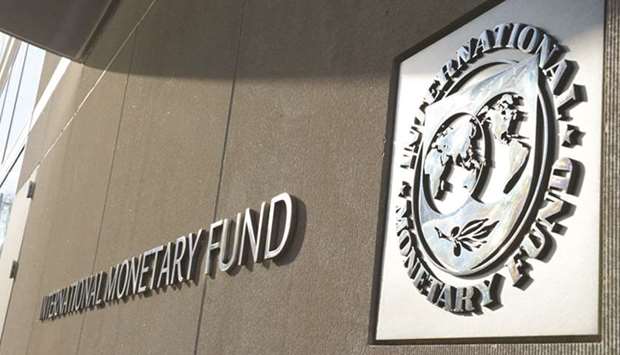Qatar needs well-targeted, structured, and sequenced policies to encourage specific sectors in order to reap benefits from its diversification drive, according to the International Monetary Fund (IMF).
In its latest Article IV consultation report, the Bretton Woods institution highlighted Qatar’s second National Development Strategy that identifies six priority sectors: manufacturing, finance, professional and scientific activities, tourism, logistics, and information and communication.
Highlighting that detailed strategies are being developed within these priorities; the IMF said, "These detailed strategies should focus on specific opportunities that link to current strengths (including low petrochemical input costs, a large financial sector, and solid port and airport infrastructure), with scope for exports and innovation."
Clear communication is needed to harness entrepreneurial initiative, the report said, adding these strategies should also present cost-benefit analysis for proposed investments and incentives.
Finding that the oil and gas sector represents a substantial share of economic activity, exports, and fiscal revenues; the IMF said diversification is important to help Qatar manage temporary price shocks and prepare for the future.
Diversification is also important to help manage short-term volatility in hydrocarbon prices, as well as the risk that the demand for hydrocarbon falls substantially in the long term, according to the report.
The Qatari economy remains competitive and well-governed, though certain areas call for further improvement, it said, suggesting improved entity transparency and enhanced co-operation to help support anti-corruption efforts.
In addition, contract enforcement could be improved by reducing the time and cost needed to settle commercial disputes and by strengthening insolvency procedures and further simplifying customs procedures could facilitate trade, the IMF said.
Restrictions on foreign investments have been lifted in many sectors. The authorities aim to attract skilled workers over time. Foreigners that possess skills needed in Qatar, to invest in Qatar, or to perform important services for the State, are now eligible for permanent residency.
Highlighting that improving educational outcomes remains a key target, it said "there is room to improve both years of schooling and performance on international tests."
The progress towards private sector-led inclusive economic growth and diversification hinges largely on improving the business climate and advancing labour market and education reforms, the IMF said, adding attention to women’s empowerment by introducing legislation emphasising equality in remuneration and avoiding gender-based discrimination would support inclusive growth.
Stressing that attention towards women’s empowerment and equality would support inclusive growth; the IMF said the World Economic Forum reports suggested that the gender gap in economic participation is larger than in emerging markets on average.
"In this regard, introducing and enacting laws that focus on equal remuneration and encourage gender equality would help promote equality. The authorities are studying international best practices to inform legislation to encourage gender equality," it said.
Highlighting that detailed strategies are being developed within these priorities; the IMF said, "These detailed strategies should focus on specific opportunities that link to current strengths (including low petrochemical input costs, a large financial sector, and solid port and airport infrastructure), with scope for exports and innovation."
Clear communication is needed to harness entrepreneurial initiative, the report said, adding these strategies should also present cost-benefit analysis for proposed investments and incentives.
Finding that the oil and gas sector represents a substantial share of economic activity, exports, and fiscal revenues; the IMF said diversification is important to help Qatar manage temporary price shocks and prepare for the future.
Diversification is also important to help manage short-term volatility in hydrocarbon prices, as well as the risk that the demand for hydrocarbon falls substantially in the long term, according to the report.
The Qatari economy remains competitive and well-governed, though certain areas call for further improvement, it said, suggesting improved entity transparency and enhanced co-operation to help support anti-corruption efforts.
In addition, contract enforcement could be improved by reducing the time and cost needed to settle commercial disputes and by strengthening insolvency procedures and further simplifying customs procedures could facilitate trade, the IMF said.
Restrictions on foreign investments have been lifted in many sectors. The authorities aim to attract skilled workers over time. Foreigners that possess skills needed in Qatar, to invest in Qatar, or to perform important services for the State, are now eligible for permanent residency.
Highlighting that improving educational outcomes remains a key target, it said "there is room to improve both years of schooling and performance on international tests."
The progress towards private sector-led inclusive economic growth and diversification hinges largely on improving the business climate and advancing labour market and education reforms, the IMF said, adding attention to women’s empowerment by introducing legislation emphasising equality in remuneration and avoiding gender-based discrimination would support inclusive growth.
Stressing that attention towards women’s empowerment and equality would support inclusive growth; the IMF said the World Economic Forum reports suggested that the gender gap in economic participation is larger than in emerging markets on average.
"In this regard, introducing and enacting laws that focus on equal remuneration and encourage gender equality would help promote equality. The authorities are studying international best practices to inform legislation to encourage gender equality," it said.


